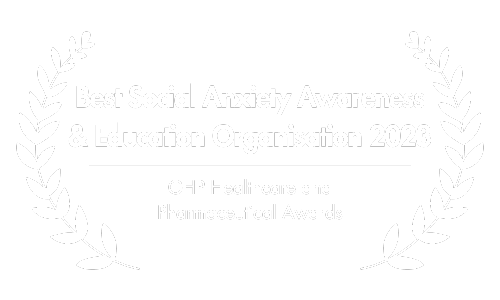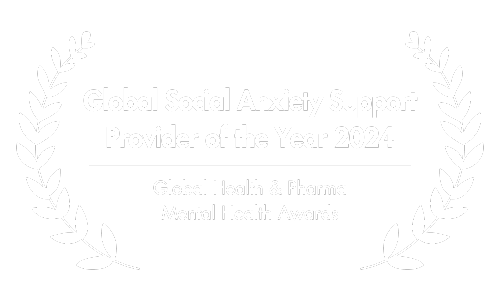Social Anxiety in the Workplace: Challenges and Top Career Choices
Living with social anxiety disorder is a daily struggle that goes beyond mere discomfort or occasional nervousness. It engenders a constant cycle of fear, shame, and sadness, significantly impairing one’s ability to function effectively in multiple areas of life.
This debilitating condition is particularly challenging in the workplace, where social interactions and performance expectations can exacerbate symptoms and hinder professional growth.

Socially anxious people do not only feel bad in certain work settings, but they may also perform objectively worse than others because of their condition.
However, affected people may be especially suitable for certain positions, as their temperament often comes along with important upsides and unique strengths.
If you experience social anxiety at the workplace or you are about to embark on a new career, it may be helpful to consider the following questions.
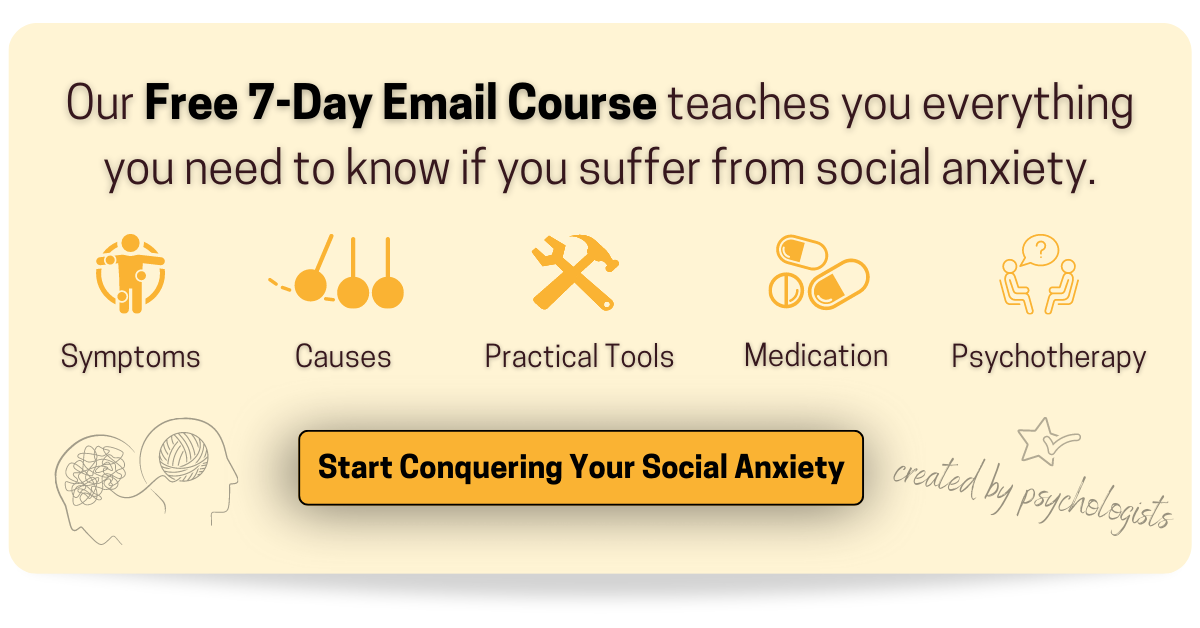
How Can You Work With Social Anxiety?
To work with social anxiety, it is important to address objective and subjective concerns. Not only do you want to be able to fulfill your professional tasks and duties, but you also want to be comfortable with these demands and feel at ease with regards to your colleagues and your work environment.
Of course, work often comes along with social stressors such as interpersonal conflict. Difficult co-workers or an authoritative boss can pose a real obstacle for people with social phobia.
As conflict avoidance and social anxiety are closely linked and tend to reinforce each other, breaking this cycle can be a real gamer changer. This can be achieved by deliberately addressing conflict instead of avoiding it and by working on your assertiveness.

Dr. Luis Escobar Pinzon, Mental Health Officer at SEAT in Barcelona, highlights this as a possible asset. When asked about the potential professional strengths of people with social anxiety, he told us:
“Socially anxious people often have had confrontational treatment where they develop strong resilience. In these treatments, they also learn strategies and skills that enable them to deal assertively with socially intense situations.”
Because of their personal hardship, people with social phobia may develop these critical skills, which are often hard to be found in a company’s workforce.
Therefore, seeking treatment is a crucial component of working with social anxiety. Like this, you may convert a weakness into one of your biggest strengths and become especially valuable to your team.
How to Find a Job If You Have Social Anxiety?
If you suffer from social anxiety, you may want to look for jobs that provide an adequate work environment for your condition. When asked for your weaknesses, you can briefly mention your socially anxious temperament and that you are working on improving your assertiveness and conflict management.
However, do not go overboard when talking about your social anxiety.
Interviewers and employers are mainly interested in whether or not you will be able to complete your tasks to their satisfaction, whether or not you will be able to perform a given job for an extended period, and whether or not you will be a cause of interpersonal conflict in the team.

Therefore, there is no need to overemphasize your social anxiety. However, it may be worth mentioning when you are asked about your personal flaws or hardships.
In fact, if you are interviewed by a well-trained psychologist, your functional impairment is not severe, and you are actively working on your problem, mentioning your social anxiety may even give you a slight advantage over other candidates. This is because:
- you demonstrate self-knowledge and the capacity for introspection;
- you state a real weakness and not an empty comment such as “I’m too perfectionistic”, “I focus too much on details”, or “I am very impatient with others”;
- you manifest your willingness to work on yourself and exhibit resilience by finding solutions to difficult problems;
- and you are transparent and may seem more likeable to the interviewer.
If this is not the case, it is likely that you are either interviewed by someone who lacks a basic understanding of human psychology or your social phobia would intervene with the tasks you would be performing.
For this reason, you may want to identify jobs that suit your personality, your skills, and your unique limitations posed by your social anxiety.

What Are the Best Jobs for Someone With Social Anxiety?
As social anxiety can manifest in different ways and in varying degrees, there is not a specific job that is best for all affected people.
Escobar Pinzon highlights the importance of understanding each individual case to make qualified career decisions.
“In general, fears must always be looked at closely to find out what the relevant drivers are. Questions like, what thoughts, feelings and beliefs come up in connection with the fears and what physical effects do they have?, should be asked and answered.”
Depending on your particular struggle with social phobia, you may experience great trouble in a position that most people find quite easy to do, but flourish in another one that many people think of as difficult.
Important to consider is also whether or not you want your job to be socially challenging. Many people with social anxiety feel inclined to choose a job with few interpersonal connections and responsibilities.
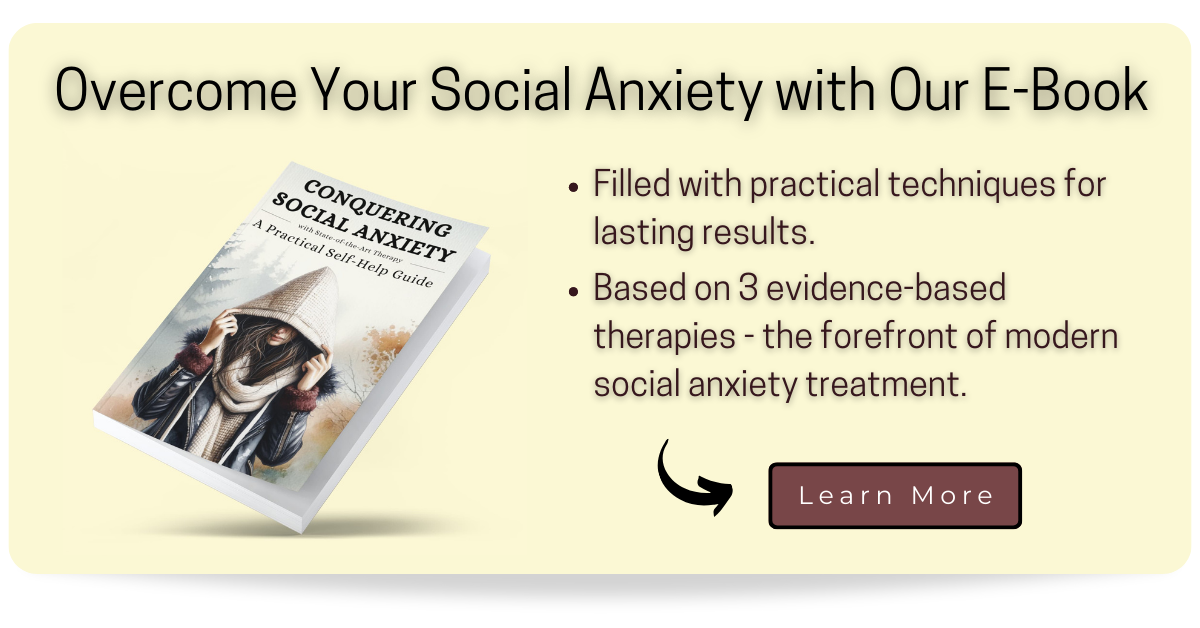
Jobs With Low Tendencies to Cause Social Distress
This choice makes sense if you consider the substantial amount of distress you would potentially experience doing a job with many social demands.
According to Escobar, “Socially anxious people may have different problems at work, mostly related to work task related pressures, the workplace atmosphere, or conflicts among colleagues or with their boss”.
This means that it is not only about the career and job type, but also about the unique characteristics of a specific position you may be interest in.
However, these things can be hard to predict when applying for a job, as you often do not get first-hand insights into these dynamics before starting to work in a given position.
If these things matter to you and will affect your productivity and well-being at the workplace, you can address them during the initial job interview.
With that said, if you are looking for a job with few social demands and decreased interpersonal distress, the following professions may be valid options.
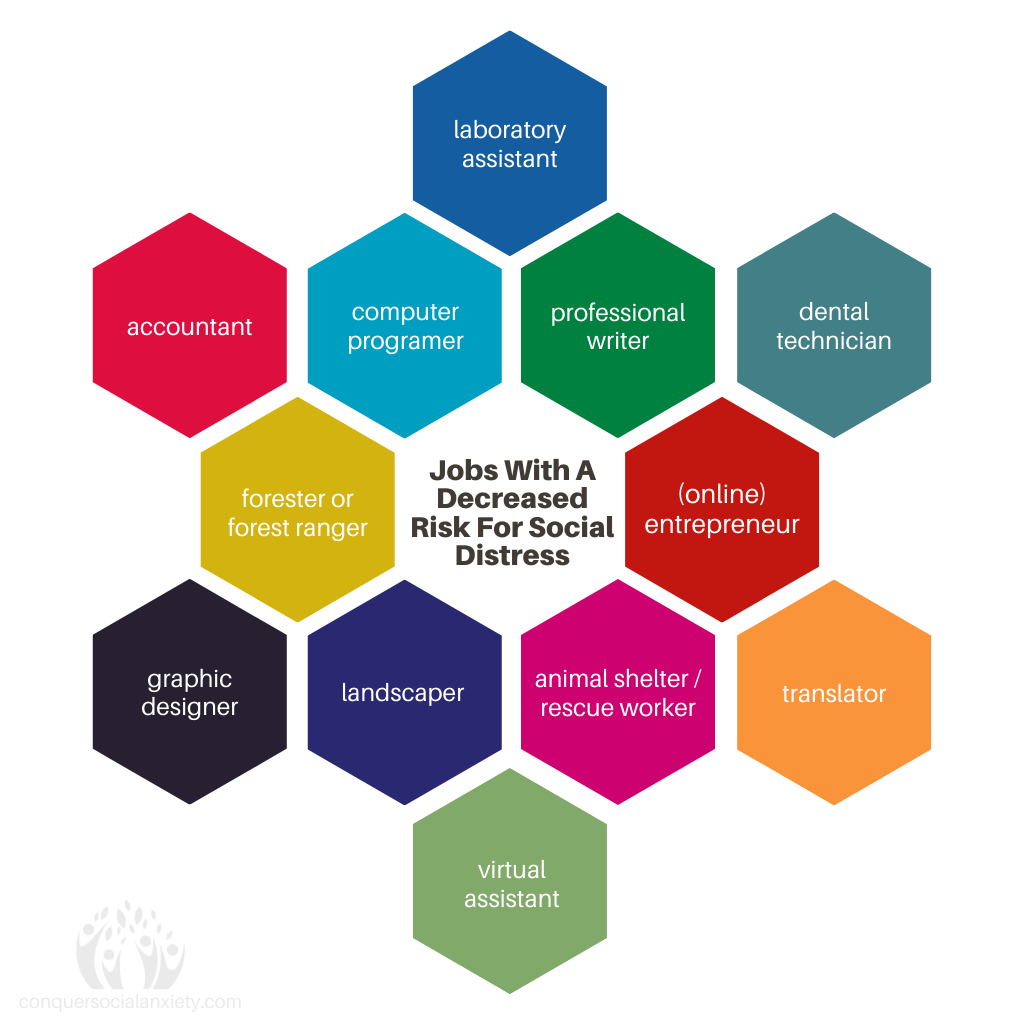
- computer programer
- professional writer
- (online) entrepreneur
- forester or forest ranger
- landscaper
- animal shelter/rescue worker
- virtual assistant
- accountant
- graphic designer
- dental technician
- translator
- laboratory assistant
Despite the upsides of choosing a socially non-threating job, it may not always be the best choice for socially anxious people.
This path comes along with fewer possibilities of exposure to feared social situations, which has been shown to be a major antidote to feelings of social anxiety (Knutsson, Nilsson, Eriksson & Järild, 2019).
Additionally, you may be equipped with some precious talents that could be of great use in jobs with a stronger social or interpersonal component.
Many people have been able to significantly reduce their social fears by doing a socially demanding job. Being exposed to challenging social situations 5 days a week can have profound, anxiety-reducing effects.

Escobar Pinzon agrees with this perspective. Taking social and health care occupations as an example, he told us that “…while these jobs can be a problem for socially fearful people, they can provide an opportunity to overcome social anxiety”.
Choosing a socially non-threatening job may keep your anxiety at bay, but it can potentially strengthen social anxiety’s grip on you, as you keep avoiding the situations you fear (Clark, 2005).
Therefore, whether or not to choose a job that is low in socially challenging situations is a delicate choice . Especially if there is a specific job you would really like to do, you may want to think about this thoroughly.
If you believe a certain job will fulfill you, you should not let your fear hold you back. Remember that there are effective treatments for SAD that can help you reduce and even overcome your social anxiety.

Jobs That Call For Social Sensitivity, Considerateness & Interest in Human Nature
Given their pronounced attunement to the needs of others, socially anxious people often do exceptionally well in jobs with a strong social, service, or health care component.
They have often been blessed with a remarkable sensitivity to interpersonal dynamics, social tensions, others people’ moods and emotions, and a natural curiosity for human nature.
If this is the case for you, you may consider diving into social sciences or the humanities, as you may be especially suited for these topics.
You may conduct research as a sociologist, study cultures and groups of people as an ethnologist, recount and analyze historic events as a historian, or even work directly with suffering people as a clinical psychologist.
Note that many of these jobs do not imply significant social stressors and that they allow you to immerse yourself in the field according to your unique strengths and traits, which also include your socially anxious temperament.
The following are some examples of career opportunities that often call for the unique strengths of socially anxious people.
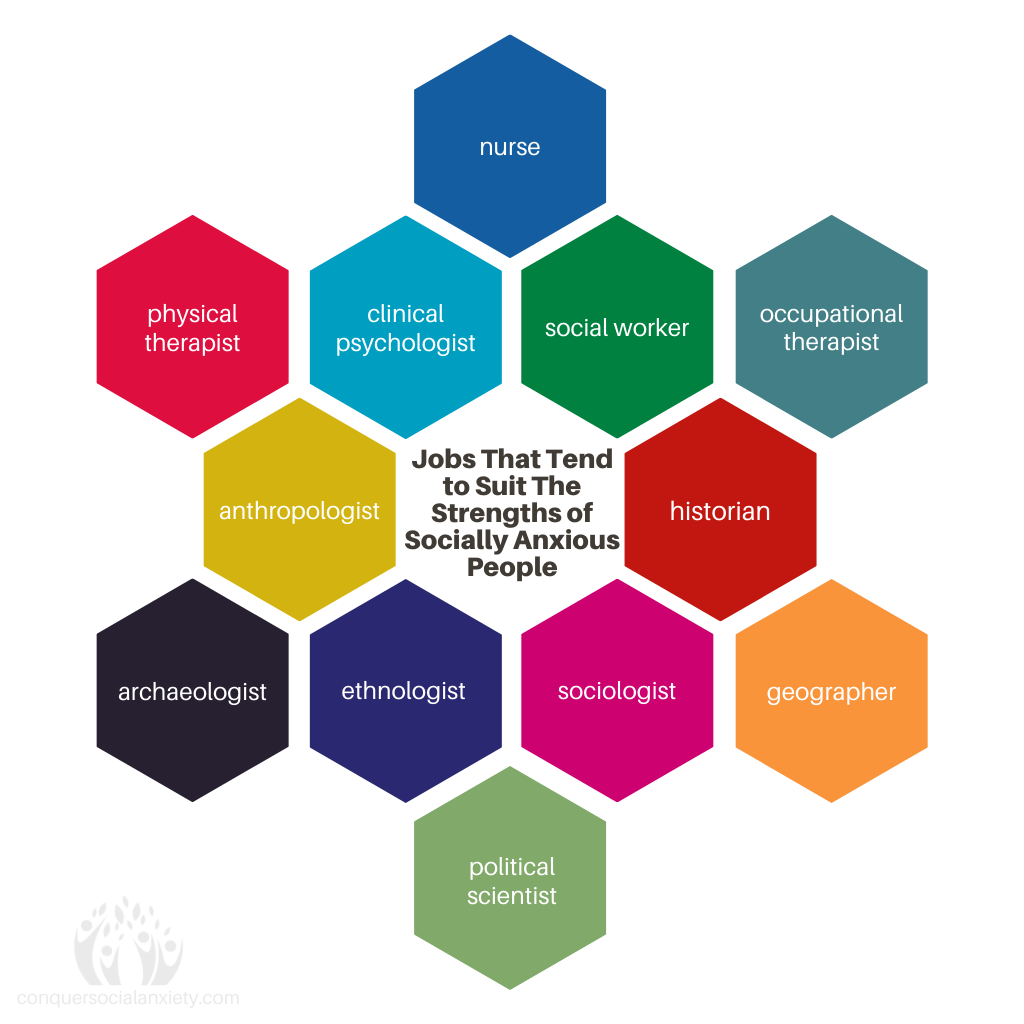
- nurse
- physical therapist
- occupational therapist
- clinical psychologist
- social worker
- historian
- anthropologist
- archaeologist
- ethnologist
- sociologist
- geographer
- political scientist
Of course, these are just a few examples. There are countless opportunities in these areas that allow you to keep socially challenging tasks to a minimum and make use of your unique talents and potential.
Remember, the world needs sensitive spirits like you!
What Jobs Should You Avoid When You Have Social Anxiety?
Now that you have a good idea of what jobs usually suit socially anxious people, let’s have a look at some red flags when looking for a new position.
There are many occupations that imply a frequent and often direct confrontation with others. That’s precisely what most people with social anxiety dread.
Generally speaking, you may want to think twice before applying to any job that requires a thick skin. In most cases, jobs that fall into this category are bad career choices for people with social phobia.
Let’s have a look at some examples so you get an idea of what to look out for.
- Police officer (frequent, direct confrontation with potentially aggressive people).
- Call center agent (many people will be bothered by you calling them and behave accordingly).
- Bartender (alcohol makes guests less likely to follow social norms, behave inappropriately).
- Waiter / waitress (you are the first one people will complain to, even if things are unrelated to you).
- Any type of job that requires receiving frequent complaints (people who complain are rarely easy going).
Even people without social anxiety often struggle with these positions and the tasks they are asked to fulfill. If you suffer from social phobia, it may be a good idea to avoid these types of jobs if you can.

Can You Be a Leader With Social Anxiety?
While traditional human resources departments still tend to employ people with overly dominant and narcissistic personalities, many companies are finally catching up with modern organizational psychology and are changing this dynamic.
Professional leaders are becoming decreasingly authoritative and increasingly considerate. The capacity to distrust the own opinion as well as being open and receptive to the inputs and needs of subordinates make people with mild social anxiety great candidates for executive positions.
However, when the social fears are so intense that they interfere with important professional tasks, this asset quickly turns into a hurdle.
For example, a leader needs to be able to discuss important issues and have uncomfortable conversations. Likewise, a good leader is able to resolve conflict and take a stance.

If you are somewhat affected by social anxiety, but you can get yourself to actually have difficult conversations, to speak in front of the team, to intervene when there is conflict, and to warn employees of consequences because of their problematic misconduct and follow through if necessary, you may have the potential to be a great professional leader.
Will Getting a Job Help Your Social Anxiety?
The primary maintaining factor of social anxiety is avoidance behavior. Getting a job that implies regular social interaction can help you break this cycle. By being exposed to the feared stimulus, your brain will habituate and and you will experience less social anxiety with time.
However, this does not mean that an improvement is guaranteed. Depending on your unique situation and the characteristics of the job you assume, your experience may vary from the one described above.
Keep in mind that social anxiety disorder is a mental health condition and usually requires professional help to be overcome.
If you suffer from social anxiety disorder, reach out to a mental health care facility or a licensed mental health care professional and start a therapeutic process.


For this piece, we interviewed Dr. Luis Carlos Escobar Pinzon as an expert. He is a Doctor of Psychology and has served as head of the Department of Occupational Safety and Health at the German Federal Institute for Occupational Safety and Occupational Medicine. He led the Work and Social Psychology task force as well as the Social Medicine and Public Health task force at the University Medical Center in Mainz, Germany and is currently a Mental Health Officer at SEAT, Barcelona.
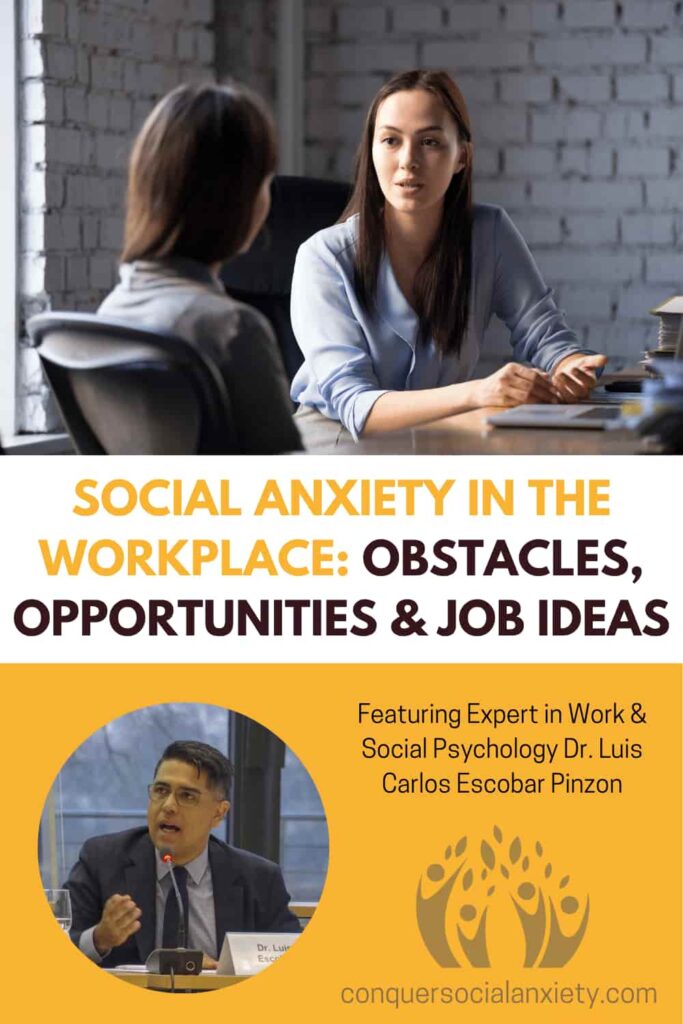
Pin, Share & Follow
[DISPLAY_ULTIMATE_SOCIAL_ICONS]Crozier, W., & Alden, L. (2005). The Essential Handbook of Social Anxiety for Clinicians.
Knutsson, J., Nilsson, JE., Eriksson, Å. et al. Imagery Rescripting and Exposure in Social Anxiety: A Randomized Trial Comparing Treatment Techniques. J Contemp Psychother 50, 233–240 (2020). https://doi.org/10.1007/s10879-019-09448-1
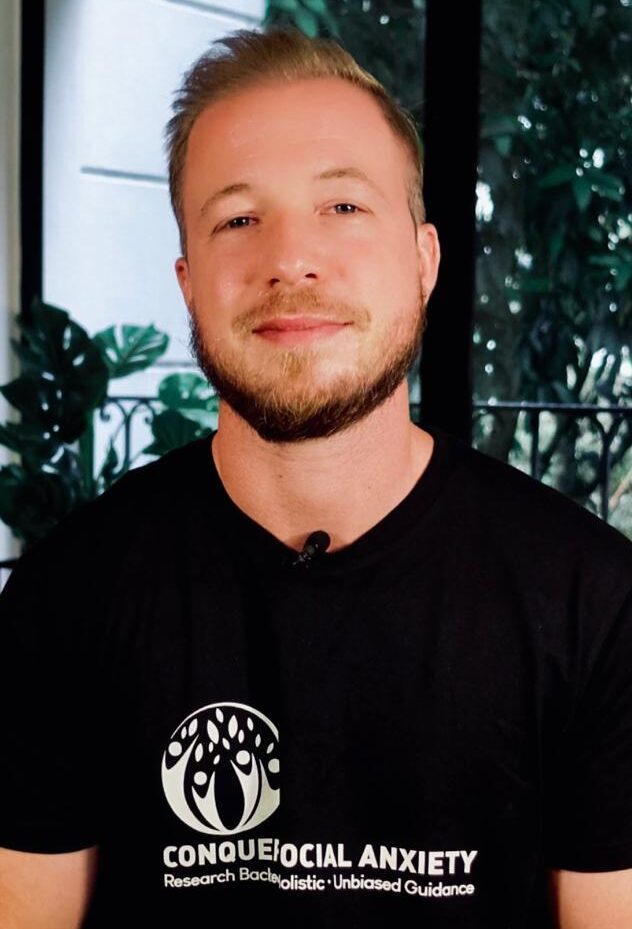
About the Author: Martin Stork
Martin is a professional psychologist with a background in physical therapy. He has organized and led various support groups for people with social anxiety in Washington, DC and Buenos Aires, Argentina. He is the founder of Conquer Social Anxiety Ltd, where he operates as a writer, therapist and director. You can click here to find out more about Martin.







